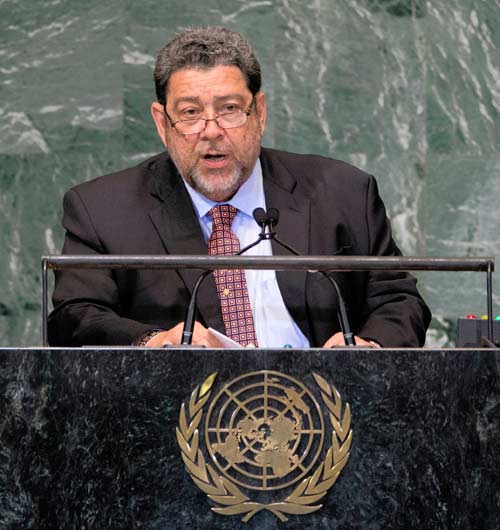Brooklyn Council Member Jumaane D. Williams has paid tribute on the day set aside by the United Nations to remember slavery and its abolition, saying that the Trans-Atlantic Slave Trade and the enslavement of Africans represented “one of the longest and most sustained assaults on the life, integrity and dignity of human beings in our history.”
“For more than three and a half centuries, men, women and children were forcibly transported in bondage from their African motherland to the Americas [which includes the Caribbean],” said Williams, deputy leader of the City Council, on Tuesday on the International Remembrance of the Slave Trade and its Abolition, which is commemorated every Aug. 23.
“This forever changed the face and character of the modern world,” added the son of Grenadian immigrants, who represents the largely Caribbean 45th Council District in Brooklyn. “The slave trade was brutal and horrific, and the enslavement of Africans was cruel, exploitative and dehumanizing.
“Today is about paying tribute to all those who fought for freedom,” Williams continued. “It is also a day to reflect and use as encouragement in for the fight against all forms of servitude, racism, prejudice, racial discrimination and social injustice that are a legacy of slavery.”
He said the Day should also serve as “a reminder that many of the problems in communities made up of descendants of slaves are not mere coincidences but consequences born out of this horrible time in history.
“I say this not as an excuse from personal responsibility, but to interweave it with a shared starting point, from which to help provide solutions,” said the outspoken legislator, calling on all New Yorkers and Americans in joining forces to “support and spread the principles of freedom, equality and equity.”
Williams said that the need is “even more prevalent with such divisive messages being not only spewed but also received on a national political stage as acceptable political discourse in a way we have not seen in decades.
“It is imperative that we recommit to the hard work it takes to live together in our multicultural societies and continue to fight against contemporary forms of slavery, of which millions are still the victims of,” he added.
Irina Bokova, head of the United Nations Educational, Scientific and Cultural Organization (UNESCO), said that the courage of the men and women, who, in August 1791, revolted against slavery in Haiti, “has created obligations for us” on the day set aside for remembrance of that rebellion.
In her tribute, the UNESCO director general noted that “all of humanity is part of this story,” adding that efforts to teach the history of the slave trade will help build a better world.
“The uprising was a turning point in human history, greatly impacting the establishment of universal human rights, for which we are all indebted,” said Bokova in her message commemorating the night in 1791, “when people who had been torn from Africa and sold into slavery revolted against the slave system to obtain freedom and independence for Haiti, gained in 1804.”
She said that UNESCO marked the Day of Remembrance to pay tribute to “all those who fought for freedom, and, in their name, to continue teaching about their story and the values therein.
“The history of the slave trade and slavery created a storm of rage, cruelty and bitterness that has not yet abated,” said the director-general, “but the courage of these men and women has created obligations for us.”
She acknowledged that the success of this rebellion, led by the slaves themselves, is a “deep source of inspiration today for the fight against all forms of servitude, racism, prejudice, racial discrimination and social injustice that are a legacy of slavery,” according to the United Nations.
“All of humanity is part of this story, in its transgressions and good deeds,” Bokova said.
Through its project, “The Slave Route,” UNESCO said it intends to find in this “collective memory the strength to build a better world and to show the historical and moral connections that unite different peoples.”
In this same frame of mind, the UN said it proclaimed the International Decade for People of African Descent (2015-2024).
UNESCO said it is contributing to it through its educational, cultural and scientific programmes, “so as to promote the contribution of people of African descent to building modern societies, and ensuring dignity and equality for all human beings, without distinction.”
























